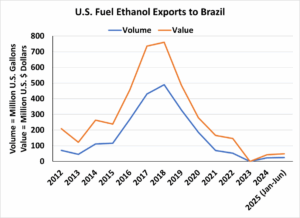 The Renewable Fuels Association is kicking off a major educational effort to help California’s fuel blenders, retailers and others in the supply chain prepare for the eventual arrival of the lower-cost E15 gasoline blend in the Golden State.
The Renewable Fuels Association is kicking off a major educational effort to help California’s fuel blenders, retailers and others in the supply chain prepare for the eventual arrival of the lower-cost E15 gasoline blend in the Golden State.
“RFA has spent years working to make E15 available in California, and an important part of this effort is to make sure that fuel marketers are ready to offer it as soon as possible,” said RFA Senior Vice President for Industry Relations and Market Development Robert White. “The coming months will be an important time to make sure retailers and others are prepared, and these workshops and other up-to-date resources we offer can help them take advantage of a fuel option that many Californians have been looking forward to for some time now.”
RFA has signed on as a platinum sponsor of the CFCA Summit, the annual trade show of the California Fuels & Convenience Alliance, the major statewide trade association representing the entire downstream fuel supply chain. In addition to a presence on the trade show floor, RFA will host three E15 educational workshops the week of the event, on September 2, 3 and 4. While the first workshop will be invitation-only for key CFCA members critical for E15’s launch in California, the next two will be open to all attendees.
Additional workshops are scheduled around the state after the conference:
Anaheim, Sept. 16
Palm Springs, Sept. 17
San Bernardino, Sept. 18
Union City, Sept. 23
Sacramento, Sept. 24
Bakersfield, Oct. 7
Costa Mesa, Oct. 8
San Diego, Oct. 9
Learn more about the effort at E15forCA.com.











